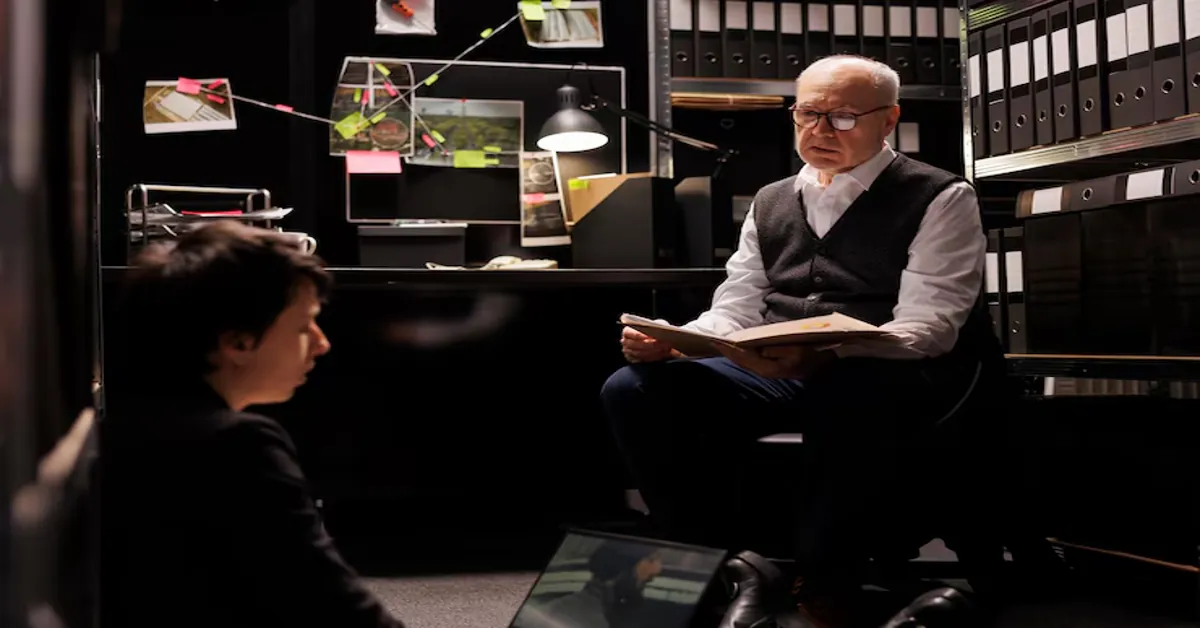When facing criminal charges, it is pretty much your freedom, future, and reputation on the line. Now is also the moment when the most critical person in your life is your criminal defense attorney, standing between you and otherwise life-changing consequences. This goes beyond legal representation-it is about protecting your rights, your story, and the future of yourself.
Whether you’re fighting over a misdemeanor or the most serious of felonies, knowing how to choose an appropriate defense lawyer might be the most important decision you’ll ever make.
Who is Criminal Defense Attorney?
A criminal defense attorney refers to a licensed legal professional who is specialized in the field of law concerning the representation of individuals and organizations accused of illegal activities. These attorneys defend and help clients appearing in court, negotiate and deal with prosecutors, find evidence, investigate witnesses, and protect the client’s constitutional rights.
There are two types:
Private defense attorneys – hired directly by the defendant
Public defenders – appointed by the court if the defendant can’t afford private counsel
Both are important because they serve well in upholding justice but at the same time a private attorney normally gives more dedicated resources and time per case.
Why Hiring the Right Lawyer Matters
And in most cases, a criminal conviction means lifetime effects-loss of job, fines, imprisonment, and even societal stigma. But a good criminal defense lawyer can:
Challenge illegal evidence
Negotiate for lesser charges or plea deal
Present other explanations/alibis
Fight for acquittal in court
Protect your legal rights every step of the way
Choosing the Wrong Defense Attorney Would Make a Difference between Being Convicted and Being a Second chance.
They Handle Various Criminal Cases
Criminal defense attorneys deal with many cases, not just misdemeanors and felonies. While some criminal defense attorneys have become specialists in certain areas, a good number prefer to handle a broader range of criminal cases.
Some Common Criminal Charges:
Driving Under the Influence
Drugs: possession, trafficking, and intent to distribute
Theft and burglary
Domestic violence
White-collar crimes (fraud, embezzlement, identity theft)
Assault and battery
Homicide and manslaughter
Juvenile offenses
Sex offenses
Understanding the charges against you and matching them with the attorney’s area of focus is paramount.
Essential Qualities to Look for in a Criminal Defense Attorney
Not all lawyers are equal. Here are the must-have traits when choosing a criminal defense attorney:
Experience with Similar Cases
Your criminal defense attorney ought to have an established track record in handling charges similar to yours. A former prosecutor can assist with invaluable strategic insight.
Courtroom Composure
Trial is a high-pressure environment. An attorney who can present confidently, command respect, and influence the jury is what you want.
Strong Communication Skills
Never be left in the dark. A good attorney keeps you informed on developments, presents the options to you clearly, and listens with an open mind.
Investigative Skills
Building a solid defense case comes down to facts. High-performing attorneys go deep into the evidence, employ private investigators when necessary, and investigate the weaknesses of the prosecution’s case.
Skilled Negotiator
Some cases resolve without a trial. Your lawyer should be in a position to negotiate favorable plea bargains and alternative sentences.
Reputation and Reviews
Online reviews, standing with the bar association, and peer recommendations go a long way. Seek an attorney who has earned the trust of both clients and colleagues.
Steps to Hire the Right Lawyer
Finding the right defense lawyer should not be overwhelming. Follow these steps:
Step 1: Research
Find local criminal lawyers and use keywords such as “criminal defense lawyer near me” or “best felony attorney [your city].”
Step 2: Read Reviews & Check Credentials
Visit Avvo, Martindale-Hubbell, or your state’s bar website to check licenses and read reviews.
Step 3: Schedule Consultations
The vast majority offer free or inexpensive consultations. Use this time to ask questions and gauge comfort.
Ask questions like the following:
How many like cases have you handled?
Outcomes?
What approach would you take in my case?
What are your fees, and do you have payment plans?
Step 4: Trust Your Gut
Don’t rush; listen carefully and give honest answers without false promises.
What Happens During the Legal Procedure
After you have hired your criminal defense attorney, the following usually happens:
Evaluation of Case
The police reports, witness statements, evidence, and surveillance footage are analyzed by your attorney.
Pre-Trial Motions
Illegal searches may be challenged, evidence suppression requested, or complete dismissal of charges sought.
Negotiation
He may be able to negotiate a plea deal if that’s what’s best for you.
Trial
If your case goes to court, your attorney will argue your case before a judge or jury, cross-examine witnesses, and present evidence.
Post-Trial or Appeal
An attorney may appeal judgment or ask for reduction of sentence in the event of a conviction.
Meaning of Costs and Fees
Legal representation isn’t cheap, but it’s one of the most important investments you make in your future. Paid amounts differ in relation to the case complexity, location, and experience.
Some Common Fee Types:
Hourly rate- Usually $100-$500+ per hour Flat charge for separate services like DUI Individual: Deposit upfront; hours are depleted as they are accrued.
Public defender is free but has heaps of cases to deal with, so private attorneys will have the capability of offering morepersonalized service and time.
Tip: Always get a written fee agreement and ask what it covers.
Final Thoughts and Next Steps
The stakes are extremely high when criminal charges are looming. A qualified criminal defence attorney will do his/her best to give you a fair shot at a positive outcome-a dismissal, a reduced sentence, or a total acquittal.
Key Takeaways:
Seek the experience, reputation, and strong communication.
Know how your attorney intends to bill and what that will amount to ahead of time.
Be honest with your lawyer-they are there to help not judge.
FAQs About Criminal Defense Attorney
Q1: Do I really need a criminal defense attorney?
A: Yes. Even a minor charge can carry long-term consequences. A professional ensures your rights are protected and you don’t make costly mistakes.
Q2: Can a good lawyer get my charges dropped?
A: Possibly. If evidence was collected illegally or your rights were violated, an experienced attorney may get your case dismissed or reduced.
Q3: How long does a criminal case take?
A: It varies. Some cases resolve in weeks, others take months or longer—especially if they go to trial.
Q4: What’s the difference between a criminal lawyer and a civil lawyer?
A: Criminal lawyers handle charges filed by the government for breaking the law. Civil lawyers handle disputes between individuals or entities.
Q5: What if I can’t afford a private attorney?
A: You have a constitutional right to a public defender. While public defenders are skilled, they may be handling dozens of cases at once.
Call to Action:
If you or someone you know is facing criminal charges, don’t wait. Consult with a trusted criminal defense attorney today to protect your rights and your future. Have more questions? Leave a comment below or explore our legal resources for more help.









